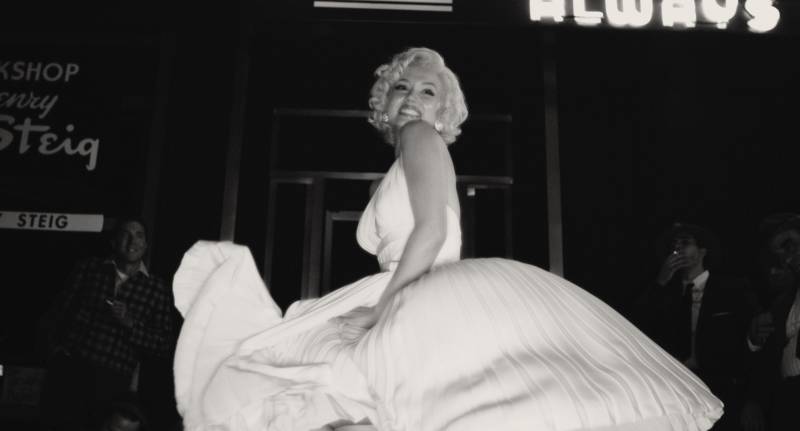In her New York Times pan of Norman Mailer’s 1973 biography of Marilyn Monroe, the critic Pauline Kael wrote, “I wish they’d let her die.” I had much the same thought after watching Blonde, which focuses so narrowly on Monroe’s pain and trauma that it feels less like a biographical drama than a passion play.
The movie turns Monroe into an avatar of suffering, brought low by a miserable childhood, a father she never knew and an industry full of men who abused and exploited her until her death in 1962, at the age of 36. There’s truth to that story, of course, but it’s hardly the only truth that can be drawn from Monroe’s tough life and extraordinary career. It’s also an awfully tedious note to keep hitting for nearly three hours.
For all that, I came away from Blonde with great admiration for Ana de Armas and her commitment to the role of Norma Jeane Baker, the woman who would become known all over the world as Marilyn Monroe. I felt even more admiration for Joyce Carol Oates’ novel, which freely reshapes and reinvents details from Monroe’s life, but offers a much more nuanced and expansive view of its subject than the writer-director Andrew Dominik manages.
The movie feels off from the start as it whisks us through Norma Jeane’s difficult upbringing in 1930s Los Angeles. We meet her volatile mother, Gladys—a fierce Julianne Nicholson—who’s diagnosed with paranoid schizophrenia and institutionalized when Norma Jeane is still a child. Blonde skips over a lot of details, including Norma Jeane’s time in foster care and her first marriage, and fast-forwards to her experience as a pin-up model, which leads to her start in motion pictures.

9(MDAxOTAwOTE4MDEyMTkxMDAzNjczZDljZA004))

